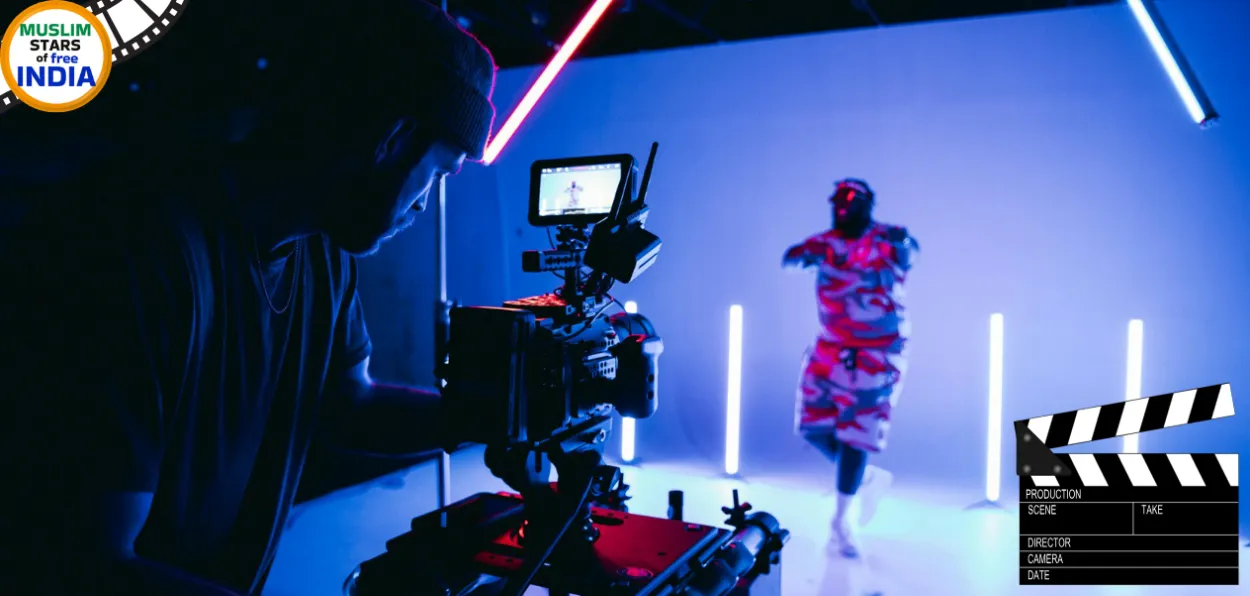
New Delhi
Indian Film Industry, the biggest of its kind produces record number of films in Hindi and many Indian languages, being a major sources of entertainment for most Indians, many actors, music composers, film directors and lyricist have almost cult following. Common people simply love the hero or heroine who plays a role on the screen without considering his religion. No wonder, Muslims have been dominating the industry from its beginning.
Here is a list of 10 iconic Muslims film personalities of the post-Independence India:
Shah Rukh Khan (Superstar)
The Badshah or King Khan of Bollywood is one of the most successful Indian actors. He has acted in more than 100 movies, including blockbusters like Dilwale Dulhaniya le Jayenge (which was shown for 25 years in a Mumbai theatre) and Chak de! India, Dunkie, and Pathan. Khan was recently nominated for his first National Award for Best Actor in his blockbuster film Jawan. He is the recipient of 14 Filmfare Awards, Padma Shri, and the order of Arts and Letters and Legion of Honour (France) – a unique record for an Indian.
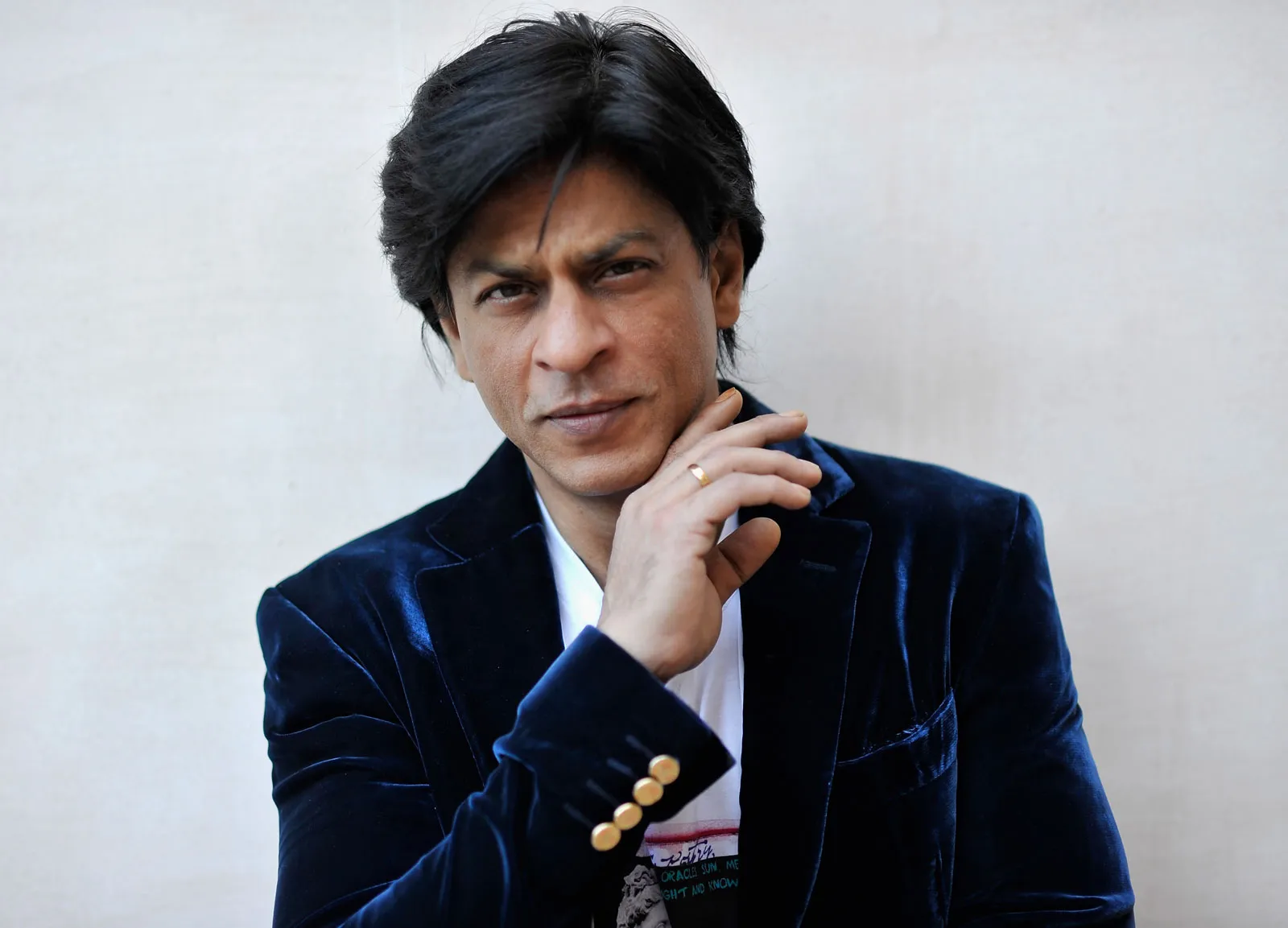 Superstar Shah Rukh Khan
Superstar Shah Rukh Khan
He is also an astute businessman owning a film production company, a cricket team - Kolkata Knight Riders -, and several luxury homes. Listed among the 10 richest actors in the world, SRK’s net worth is estimated at around Rs 75000 crores. The 59-year-old Khan’s many blockbuster films are based on the theme of national unity, Indian identity, and gender and religious discrimination. His image of a romantic hero remains intact despite his age. However, he continues to dominate the Hindi film industry with his action films like Pathan and Jawan.
Meena Kumari
The quintessential tragedy queen of Hindi films, Meena Kumari’s last film, Pakeezah, famously brought many cities in India and Pakistan to a halt on the day of its release in theatres. Born Mahjabeen Bano in August 1933, Meena Kumari started as a child artist and rose to become one of the finest and greatest actresses in the history of Indian cinema. In her 33-year career, she worked in 90 films and won four Filmfare Awards in the best Actress category.
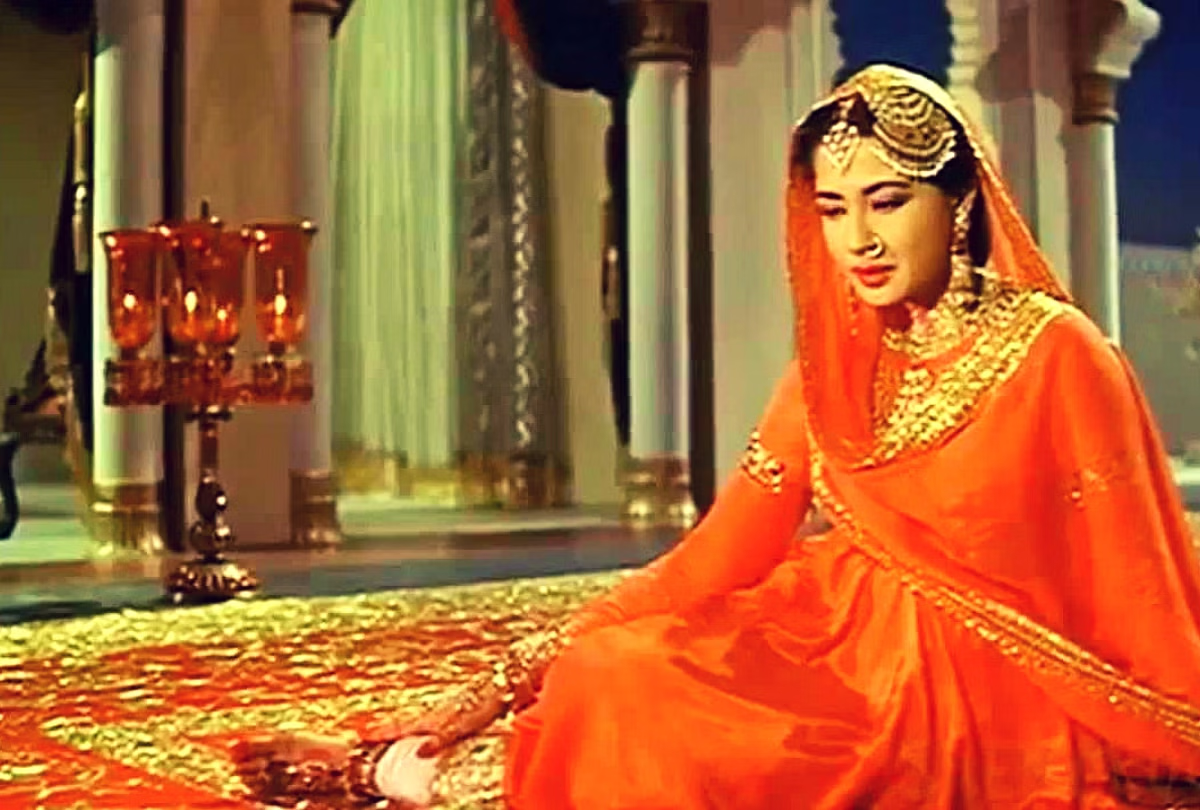 Meena Kumari in Pakeezah
Meena Kumari in Pakeezah
Her films were smash hits beginning with her first one, Baiju Bawra (1954). A beautiful woman as Meena Kumari was, her acting was understated and almost like her poetry. She starred in many blockbusters like Do Bigha zameen, Sahib Biwi Aur Ghulam, Dil Ekk Mandir, etc.
Due to her alcohol addiction, Meena Kumari died of cirrhosis of the liver at the age of 38 in 1972. Meena Kumari was also a poet and a playback singer.
A. R. Rahman (Music composer)
Chennai-born A R Rahman has elevated Indian music to the global stage. He is a musical genius who has blurred the distinction between music composition, singing, record producer, and stage performer. It’s no exaggeration to say that today he is the most well-known non-classical Indian musician in the world. Rehman is a musical wizard who has been conferred many titles like the Mozart of Chennai and “Isai Puyal" (musical storm).
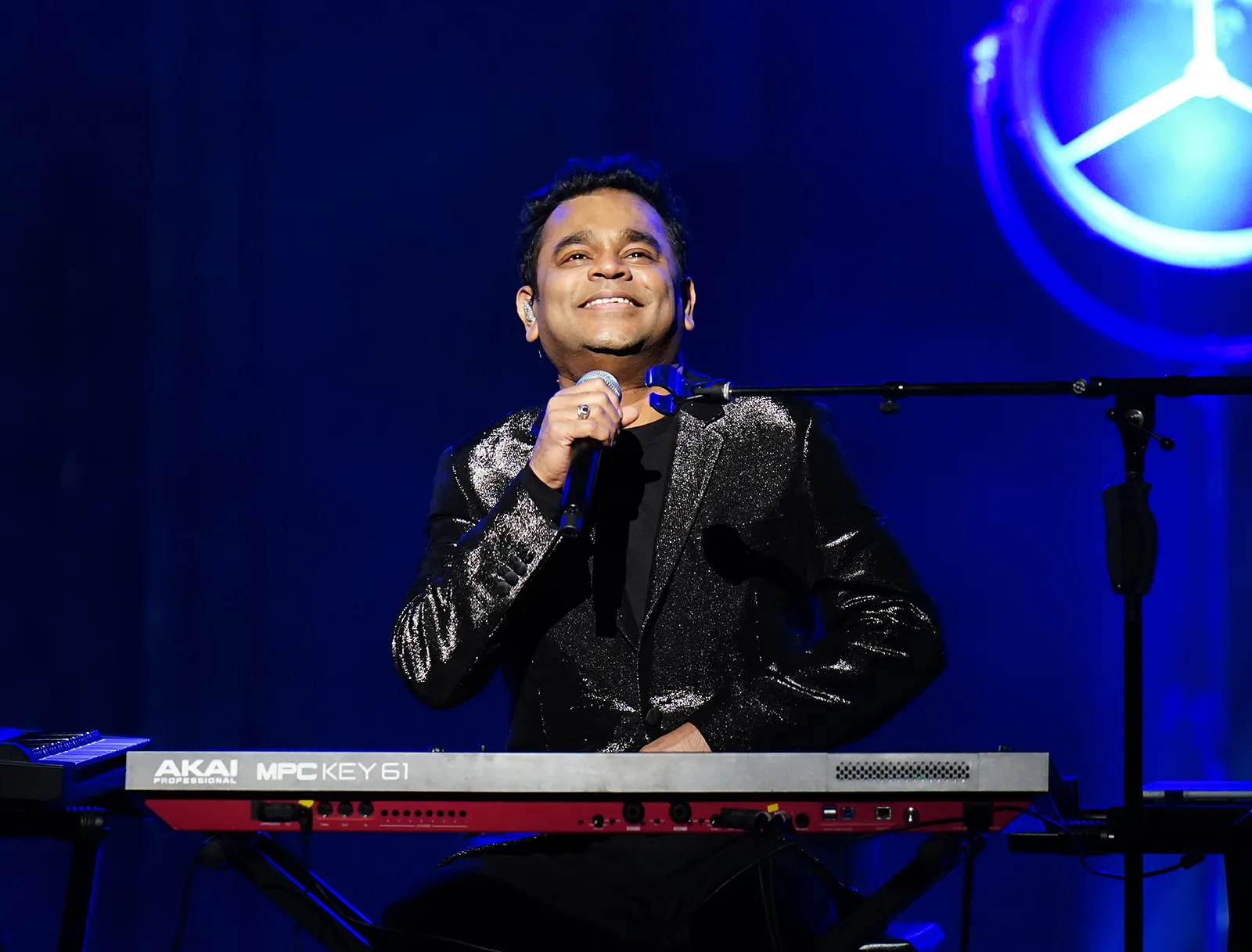
A R Rahman
Though Rahman has worked in the Hindi and Tamil film industry has also done an occasional international project and collaboration. He is a recipient of six National Film Awards, two Academy Awards, two Grammy Awards, two BAFTA Awards, one Golden Globe, and Padma Vibhushan. Rahman has also become a humanitarian and philanthropist, donating and raising money for a number of causes and charities. In 2006, he was honoured by Stanford University for his contributions to global music. In 2009, he was included on the Time list of the World’s 100 most influential people.
Mohammad Rafi (Playback singer)
Mohammed Rafi, who passed away at the age of 55, has recorded over 7,405 and 26,000 in Hindi and 11 languages. He is still rated as the "best singer of the millennium." His songs are still a rage across India and Pakistan. When he passed away in July 1980, his burial in Mumbai saw one of the largest funeral processions in India, with an estimated 10,000 people attending it. The government of India announced a two-day public mourning in his honour.
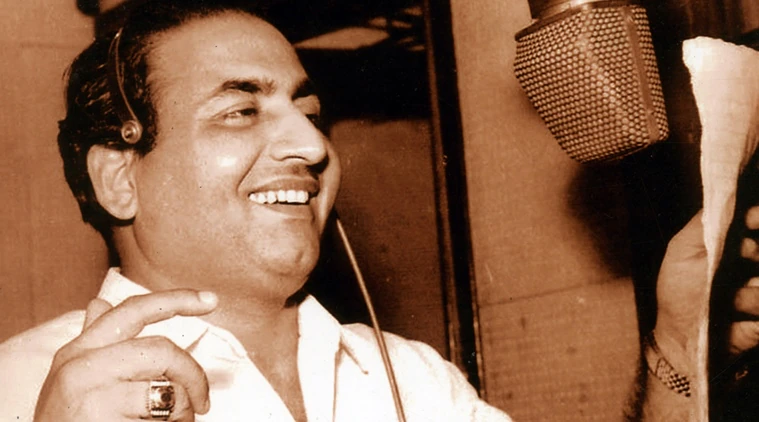
Mohammad Rafi
Manmohan Desai once famously said, "If anyone has the voice of god, it is Mohammed Rafi". Despite his towering fame, Rafi was known for his humility, generosity, and deeply spiritual nature. He often helped struggling musicians and singers, never boasting of his accomplishments. His discipline and devotion to music earned him deep respect within the industry.
K Asif: The Visionary Behind Mughal-e-Azam
K. Asif, born Karimuddin Asif in 1922, was one of Indian cinema’s most visionary filmmakers, best known for directing the epic masterpiece Mughal-e-Azam (1960). A man of grand dreams and unmatched passion, Asif redefined the scale and ambition of Bollywood filmmaking.
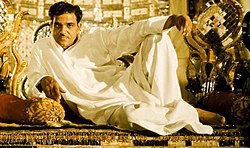
Filmmaker K Asif
His magnum opus, Mughal-e-Azam, took nearly a decade to complete and became a landmark in Indian cinema for its opulent sets, powerful storytelling, and timeless music. The film, based on the tragic love story of Prince Salim and courtesan Anarkali, brought historical romance to life with grandeur never seen before. It also showcased his meticulous attention to detail and insistence on perfection—traits that sometimes delayed his projects but ultimately created cinematic history.
Despite directing only a handful of films, K. Asif's legacy endures. He proved that Indian cinema could stand tall on the world stage with its distinctive voice and aesthetic. His work continues to inspire generations of filmmakers to dream big and push creative boundaries.
Dilip Kumar (Suprstar)
Dilip Kumar, born as Muhammad Yusuf Khan in 1922 in Peshawar, was a legendary actor whose contribution to Indian cinema remains unparalleled. Known as the "Tragedy King," he brought unmatched depth and realism to his performances, redefining acting in Hindi films. His iconic roles in classics like Devdas, Mughal-e-Azam, Naya Daur, and Ganga Jamuna showcased his emotional intensity and versatility. Over a career spanning six decades, he earned numerous awards, including the Dadasaheb Phalke Award and the Padma Vibhushan. More than just an actor, Dilip Kumar was a symbol of dignity, grace, and artistic excellence in Indian cinema.
Dilip Kumar in Maghl-e-Azam
In total, Kumar worked as a lead in 57 films. Also, he was doing many cameo/guest appearances and many unreleased films in his 54-year film career. He was the most choosy and selective actor at that time. He earned 19 nominations for best actor at the Filmfare Awards in his career, winning 8, three of them back to back (which is a record in itself). He received the Filmfare Lifetime Achievement Award in 1994.
Naushad Ali (Music composer)
Naushad Ali was one of the most influential music composers in the history of Indian cinema. Born in Lucknow in 1919, he infused richness of classical Indian music into the popular film soundscape at a time when Western influences were beginning to dominate. With a deep understanding of ragas and traditional instruments, Naushad created timeless melodies that elevated films like Baiju Bawra, Mughal-e-Azam, and Mother India to legendary status.
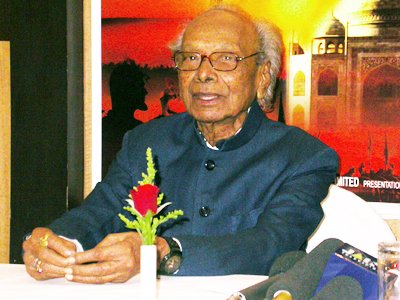 Music composer Naushad
Music composer Naushad
He was among the first to use a full orchestra in Hindi films and gave opportunities to classical stalwarts like Ustad Amir Khan and D.V. Paluskar. Naushad’s collaborations with singers like Mohammad Rafi and Lata Mangeshkar produced some of the most memorable songs in Indian cinema. His work was not only musically rich but also emotionally resonant, capturing the soul of the story.
Naushad’s legacy lies in his ability to bridge classical traditions with cinematic appeal, making him a true architect of India's golden era of film music.
Waheeda Rehman
Waheeda Rehman is one of the most graceful and enduring icons of Indian Films. Making her debut in the mid-1950s, she quickly rose to prominence with her expressive eyes, nuanced performances, and classical beauty. Her first chart-breaking movie was Guide (1965), where her portrayal of Rosie, a woman asserting her independence, became a landmark in Hindi cinema.
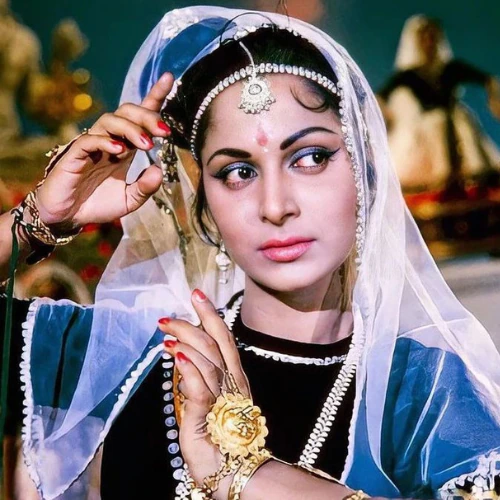
Waheeda Rehman in the film Guide
Collaborating frequently with legendary directors like Guru Dutt and actors like Dev Anand, she brought depth to roles in films such as Pyaasa, Kaagaz Ke Phool, Sahib Bibi Aur Ghulam, and Teesri Kasam. Beyond her acting prowess, Waheeda Rehman is celebrated for bringing dignity and authenticity to every character she portrayed. Over the decades, she has remained a symbol of grace, professionalism, and timeless talent in the history of Indian films.
Mammootty (Malayalam cinema)
Mammootty, born Muhammad Kutty Panaparambil Ismail, is one of Indian cinema’s most iconic and versatile actors. With a career spanning over four decades, primarily in Malayalam cinema, he has acted in more than 400 films across multiple languages, including Tamil, Telugu, Hindi, and Kannada. Known for his powerful screen presence and deep baritone, Mammootty has portrayed a wide range of characters — from intense dramatic roles to commercial heroes — with remarkable ease.
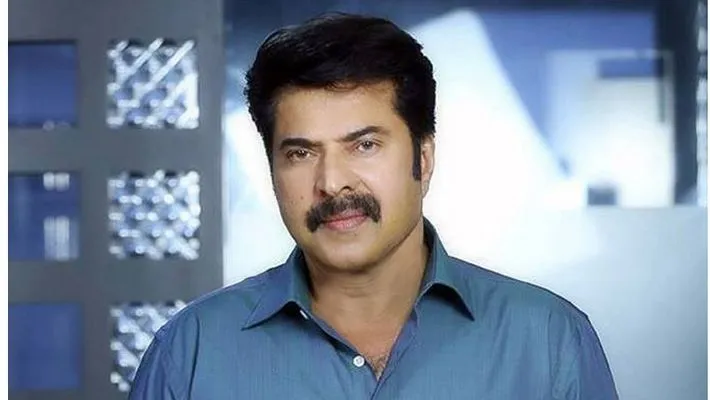
Malayalam cinema superstar Mammootty
A three-time National Film Award winner, he is also a recipient of the Padma Shri, India’s fourth-highest civilian honour.
Off-screen, Mammootty is a lawyer by education, a philanthropist, and a cultural icon who has influenced generations of film lovers and aspiring actors. His enduring appeal and commitment to meaningful cinema continue to shape the landscape of Indian film.
Mehmood (Actor-Comedian)
Mehmood Ali, fondly known simply as Mehmood, was one of Indian cinema’s most beloved and iconic comedians. Born in 1932 in Bombay, he began his career as a child artist and rose to fame in the 1960s and 70s with his impeccable comic timing, expressive face, and unique ability to blend humour with social commentary.
Mehmood, Comedian
Over a career spanning four decades, Mehmood acted in over 300 films, including classics like Padosan, Bombay to Goa, Kunwara Baap, and Do Phool. He wasn't just a comic sidekick; he was often the soul of the film, carrying stories on his shoulders and winning audiences with his charm and emotional depth. Mehmood also directed and produced several films, showcasing his multifaceted talent.
ALSO READ: Independent India's top 10 Muslim leaders
His characters often represented the common man — quirky, flawed, but deeply human. Mehmood's legacy remains unmatched in Indian comedy, and he is remembered as a trailblazer who brought dignity, variety, and heart to comic roles in Hindi cinema.
